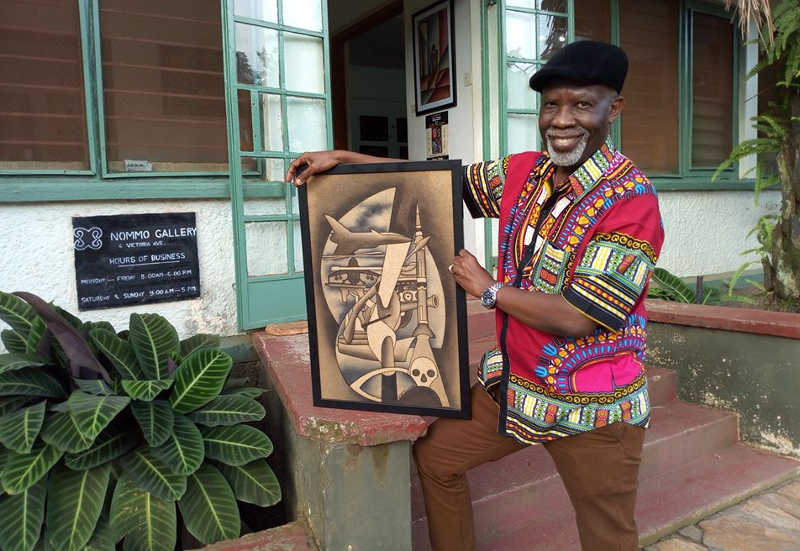Possible responses, opportunities for government and private sector

In the past musicians, painters, and sculptors enjoyed patronage of Kings, Popes, and the wealthy especially the merchants.
It was the same here in Uganda during the Kingdom era and soon after the 1966 crisis.
State patronage disappeared in the 1980s and subsequently even that of the church and private sector shrunk significantly.
A return to state patronage is not only desirable but necessary to instill a sense of self belief and actualisation among the people who at present seem to be struggling with an identity crisis.
As long as we continue to cut and paste policies from elsewhere, without domesticating them, we will continue to wonder why we have so many unimplemented (I hasten to add on implementable) nice sounding policies on the books!
What Uganda needs are policies that are informed/influenced by our cultural and traditional values, to be impactful.
Creative people in Uganda are not disorganized as suggested by many commentators including some artists. They are merely unorganized. Otherwise, how could they have been able to get where there today without government help?
The problem therefore is lack of talented passionate professional managers to strategically mind and guide creatives.
Unlike other industries whose success depends on structured unity, the culture and creative industries’ success thrives on unity in diversity.
It is important to note that, on their own they have come from very far and are determined to go very far.
Producing a work of art takes a lot in terms of intellectual and physical energy.
By the time an artist is done with creating the art piece he/she is completely drained.
Therefore, expecting the same artist to excel equally in managerial and marketing roles thereafter is asking for too much.
Their contemporaries elsewhere, with whom people here are fond of comparing them, are managed and marketed/promoted by skilled and specialised handlers in those areas.
Uganda generally lacks managers and that’s why we are in this quagmire. Most Ugandans that have excelled on the international stage are either diasporas, assisted by diasporas or foreigners domiciled here.
Not that the culture and creative industries haven’t contributed to national development, of course they have, but their contribution has either been undermined and undervalued by design or default.
Examples of their contribution include:
- Creating Symbols of identity
- Mobilization for unity and development.
- Advocacy for noble and not so noble causes
- Inform, educate and entertain society.
The creatives are deployable in all sectors of development, and have been doing so albeit under the radar.
Every weekend URA collects taxes from creatives’ performances.
Every weekend creatives are busy ensuring the success of ceremonies, by dressing people, decorating venues, entertaining guests and managing ceremonies.
Visual, performing and literary artists have impacted lives domestically, regionally and internationally. Ace comedian Anne Kansiime is increasingly replacing Idi Amin when describing Uganda abroad. The late Jak Katarikawe’s art is among the most collected from East Africa and Hon. Robert Kyagulanyi aka Bobi Wine and Edirisa Musuuza aka Eddie Kenzo need no introduction on the global music stage.
While all this is going on, Uganda Bureau of Statistics (UBOS) isn’t shy to plead ignorance to the contribution of the culture and creative industries to national development.
I therefore would advise UBOS to work with universities to introduce a course in culture economy and talent management.
The National Arts and Cultural Crafts Association of Uganda (NACCAU) has since 2003 to date paid to the Uganda National Cultural Centre (UNCC) over UGX1bn in ground rate. Mind you it isn’t rent because we put up our own structures.
In spite of that, government is yet to appreciate and recognise the contribution of the Culture and creative industries in national development. That’s why there are no official statistics to that effect.
Had it shown interest in the development of the sector, the private sector would have characteristically moved to invest in the sector because they tend to gravitate towards where there are quick and assured returns or where government has shown interest. A case in point is the current rush by the private sector to contribute generously to government’s COVID-19 Relief Fund.
Moving forward, government should be the primary consumer of our products and also use incentives to attract the private sector to invest heavily in the sector.
It is the only sector that has registered growth without government’s direct support, you can imagine how far it will go, given a push.
As we prepare to deal with post COVID-19 psychological, social and economic challenges, government should consider extending a stimulus package, and tax amnesty to artists.
As for NACCAU, rent deferment for at least six months would suffice, after all Uganda National Cultural Centre (UNCC) our landlord is a government parastatal under the Ministry of Gender, Labour and Social Development.
Free internet access too would go a long way in encouraging and empowering creatives to embrace employ digital tools in their businesses.
Government should also embark on training and grooming talent managers, a skill that is lacking yet talent abounds.
Nuwa Wamala Nnyanzi is a Visual Arts Practitioner/Consultant
NNYANZI ART STUDIO
He is also the Vice Chairperson – NACCAU








